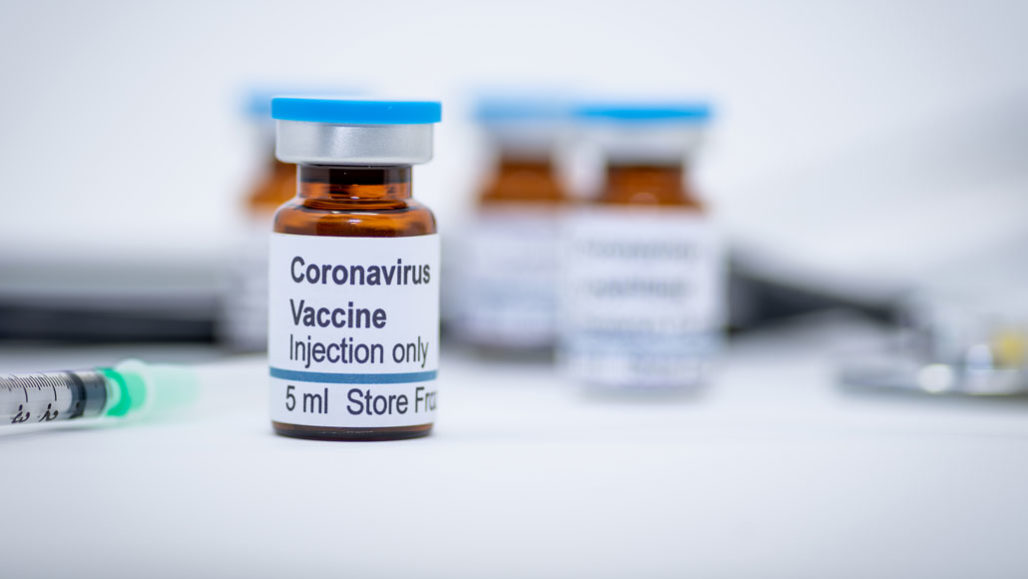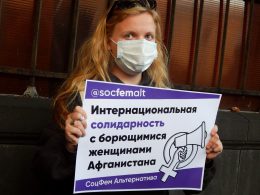By Dan O’Rourke
A recent headline on a prominent African news outlet read “Africa needs a billion Covid vaccines, but supply is slowing down”. Just a couple of weeks prior, an article in the Financial Times exclaimed, with zero irony, “‘We are drowning in vaccine.’ What will revive the market for Covid jabs?”, with the sub-line adding, “Moderna’s chief says there is ‘massive oversupply’”.
Yet as these companies face a crisis of overproduction, due to an apparent lack of profitable markets, tens of millions who need these vital vaccines will become sick – and many will die.
To speak of an overproduction of a vaccine at the same time as a major shortage of that same vaccine is possible only within the warped logic of the capitalist system. Although vaccines have a social use value in saving lives, their exchange value on the market is what dictates whether the vital good is actually administered to those who need it. In short this is a truly sick system.
Vaccines for profit, not people
In public and in the media, pharma bosses are blaming “vaccine hesitancy in developing markets” for the lower than expected profit margins. However, Oxfam and even pharma shareholders have pointed to the fact that low uptake in developing countries is due to pharma companies’ “hesitancy” in letting go of the vaccine formulas and allowing vaccines to be produced locally.
Locally produced vaccines would help overcome supply chain bottlenecks and allow vaccines to be delivered at a steadier, more efficient pace, rather than the current “lumpy” supply, in which too many vaccines are delivered in one go.
The Financial Times asks what would cure ailing profitability margins, pointing to Moderna’s CEO’s hope for the emergence of a new more virulent strain as the answer. A new strain would certainly create more demand for vaccines, as well as more pain and suffering, but for big pharma pain means profit.
No profitable incentive to eradicate Covid
Indeed, the emergence of a new more virulent strain is more likely the fewer vaccines are administered in the Global South, adding more incentive for pharma companies to jealously guard the intellectual property of vaccines (which were funded by public money).
New strains will continue to emerge when as few as 16% of people in the Global South are vaccinated. We cannot wait for corporations to develop new vaccines, when what we need is for the intellectual property to be commandeered and given to local producers so healthcare can be provided on the basis of need, not corporate profits.
Devastating contradictions of capitalism
Overproduction of goods is inherent to capitalism. The rush to exploit new markets ahead of competitors leads to churning out products that go to waste when those markets dry up, while those considered outside the market – not because they don’t want or need the products but because they can’t pay the higher rates – go without. Marx characterised this as “poverty in the midst of plenty”.
Even basics such as food and housing suffer this contradiction. Masses of food go to landfill as famine threatens the globe. In Ireland, the US, the UK, and many other countries, there are more empty houses than homeless people. The climate crisis is also the result of this toxic overproduction as C02 emitting cars and coal and oil are churned out in order to maintain profit margins, when viable alternatives exist.
The only solution is a complete break from capitalism, and the move to a rational economic system which is publicly owned and democratically planned in the interests of society as a whole–a democratic socialist society. The massive capacity of global industry and technology, built and run by workers, must be seized from the parasitic profiteers who would happily see millions die, rather than jeopardise corporate profit margins.












